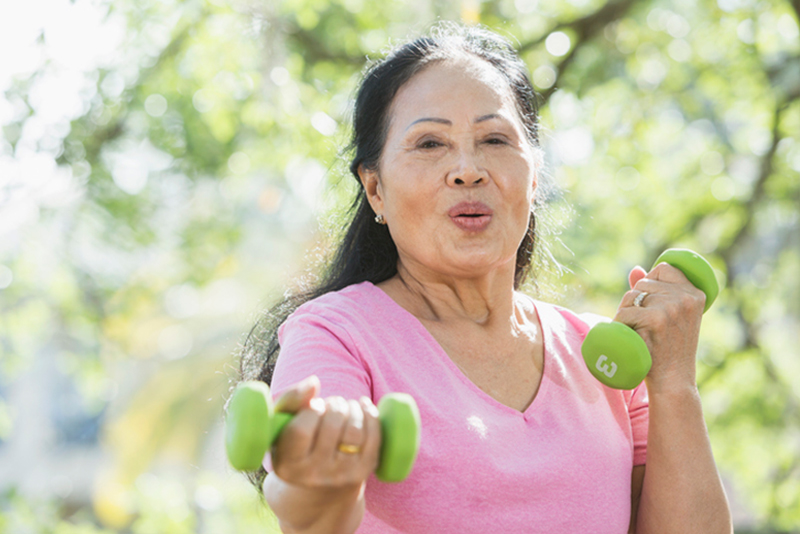
Use these tips for senior stroke prevention to help a loved one lower their risk.
Suffering a stroke is only the first step in a series of challenges. The resulting effects from a stroke can linger long-term. In fact, the National Institute on Aging marks stroke as the leading cause of disability in older adults in the U.S.
As with all other serious medical conditions, prevention is key.
Senior Stroke Prevention Tips
The good news is that there are many proactive measures that can be taken to prevent a stroke, including:
- Watching blood pressure and cholesterol levels. High blood pressure and high levels of cholesterol can lead to heart disease and/or stroke.
- Routinely exercising. The doctor can provide specific recommendations and guidelines on the best exercise program for the individual.
- Following a healthy diet. Incorporate foods that are low in cholesterol and fat, including plenty of veggies and fruit, into each meal.
- Managing diabetes. Diabetes, when not properly managed, can harm blood vessels and narrow arteries, which can lead to stroke.
- Quitting—or never starting—smoking. Smoking dramatically increases the risk of a stroke.
These lifestyle changes can go a long way towards lowering the possibility of stroke, and can also help prevent a second stroke if the person has already experienced one.
What Are the Signs of a Stroke?
If, in spite of taking the steps outlined above, a person does have a stroke, it’s important to learn the signs and to act immediately. Time is of the essence, and getting medical care right away can save a life.
Signs of a stroke include:
- Sudden vision problems
- A severe headache that occurs for no known reason
- Sudden dizziness, loss of balance and coordination, or trouble walking
- Drowsiness
- Sudden weakness or numbness on one side of the body, especially in the arm, leg, or face
- Difficulty speaking
- Confusion
- Nausea or vomiting
What Will the Stroke Recovery Process Involve?
Recovery from a stroke starts with therapy. This can include physical therapy, occupational therapy, and/or speech therapy, depending on how the person has been affected.
- A physical therapist will help the individual regain basic skills including standing, walking, sitting, and transitional activities.
- An occupational therapist aids in retraining on activities of daily living that could have been affected, such as preparing meals, getting dressed, eating, drinking, taking a shower, etc.
- A speech therapist helps individuals recover their ability to speak, as well as understand what others are saying.
The goal of these rehabilitative therapies is to help the person increase independence and self-sufficiency.
The Role of In-Home Care
A home care provider, like Absolute Companion Care, is a fundamental part of both helping a person prevent a stroke and assisting with a stroke survivor’s recovery. Our services are highly customized to each individual’s needs, and can include:
- Providing medication reminders
- Running errands, such as picking up groceries and prescriptions
- Planning and preparing nutritious meals
- Motivating the person to adhere to a doctor-approved exercise regime
- Offering transportation and accompaniment to medical appointments and any other desired outing
- And much more
Reach out to us today to learn how an in-home caregiver from Absolute Companion Care can improve safety and wellness for someone you love. You can contact us any time at 410-357-9640. We are pleased to offer care throughout Towson, Timonium, Hunt Valley, and the surrounding areas.
